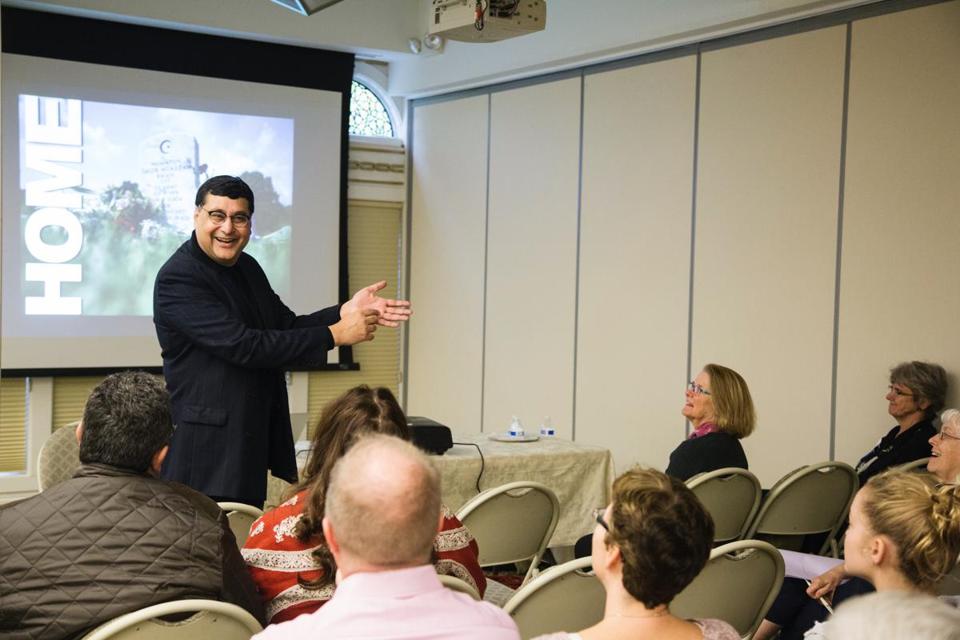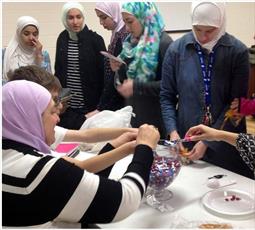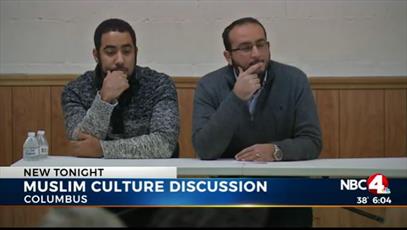Hawzah News Agency-On a rainy Saturday morning at the Islamic Center of Boston, Shaheen Akhtar spoke to strangers about the Koran — the three on the table next to her, but also about how Thomas Jefferson and John Adams had owned copies.
“People think that Muslims have just come here to this country,” but an inclusive dialogue about Islam goes back to the founding fathers, including Jefferson, who advocated for the rights of practitioners of the faith, said Akhtar, an interfaith liaison who works with the center.
As part of the fourth annual “Meet Your Muslim Neighbors” event, the Islamic Center of Boston saw a steady stream of Muslims and non-Muslims coming together to learn about Islam.
Ann Gibson said that when her two children seemed to be losing enthusiasm for Sunday school at their Lutheran church, she embarked on a yearlong project to expose them to other religions. They visited other churches, a synagogue, and the Islamic Center, she said.
“I don’t feel like the secular world is all there is to life,” said Gibson, a visitor and member of the Islamic Center’s interfaith book club led by Akhtar.
Robert O’Hearne, a Catholic who first began coming to the Islamic Center for Arabic classes, also brings his two children to interfaith events there.
It wasn’t until he started visiting the Islamic Center that he realized how many Muslims he already knew, including a colleague with whom he had worked for five years, O’Hearne said.
“Part of it is getting to know people,” he said.
Inside the large white building on Boston Post Road, tables with posterboards, books, and photos lined the walls of the foyer, as Muslims affiliated with the Islamic Center stood by to explain the material and answer questions. Visitors took tours, participated in or observed prayer, and attended lectures including “Islam 101.”
The Islamic Center, which offers congregational prayers and a Muslim Sunday school, has long prided itself on its interfaith services, including resources for homeless families through the Family Promise Metrowest organization.
During a question-and-answer panel, attendees spoke about how the media contributes to an Islamophobic narrative by disproportionately linking Muslims with violence, with little interest in showcasing the larger, peaceful Muslim community. Some likened it to framing coverage of Christians through the lens of the Westboro Baptist Church and the Ku Klux Klan.
Muslims at the center spoke of how recent events — both terrorism and recent political discourse — require them to have very difficult conversations with their children.
During a presentation at the event about the experience of being a Muslim in America, Adil Najam, dean of the Frederick S. Pardee School of Global Studies at Boston University, told the crowd, “If you are a Pakistani and a Muslim and in a department of international affairs on 9/11, you get anointed on all sorts of things you never claimed to be an expert on.”
But Najam, as well as attendees of other faiths, emphasized that non-Muslim parents need to have the difficult conversation about how to deal with Islamophobia, too.
“You can’t be a bystander,” said Elizabeth Jonczyk, who was visiting the center with her sister to learn about Islam. “You have a duty to stand up and say, ‘That’s just wrong,’ and that you don’t stand with the people who have this hateful rhetoric.”




Your Comment